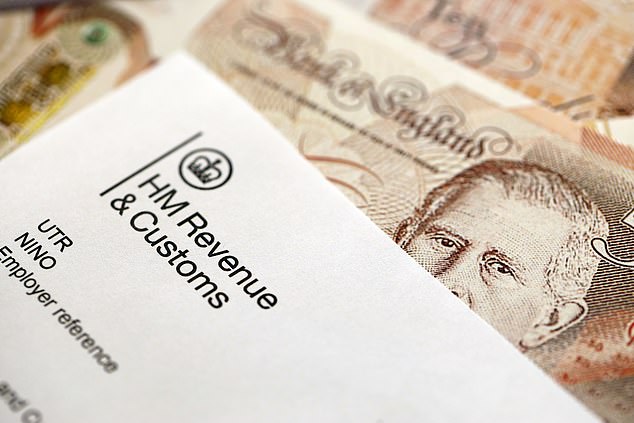The Government is continuing to pull in increasing amounts of revenue from stamp duty, new figures show.
Homebuyers paid £12.3billion in stamp duty between January and October, according to Coventry Building Society’s analysis of the latest HMRC statistics.
That represents a 21 per cent rise from the £10.2billion paid over the same period last year.
In October, homebuyers paid a total of £1.5billion – the highest point of the year so far.
Stamp duty can add thousands or even tens of thousands to the cost of buying a home.

Paying up: In October, homebuyers paid £1.5bn in stamp duty receipts – which is the high point of the year so far
Most recently, buyers were hit by a stamp duty hike from 1 April 2025, as Labour opted not to extend a tax break that had been in place since 2022.
Stamp duty starts at 2 per cent above a threshold of £125,000 and then steps up to 5 per cent above £250,000.
On the portion of a property’s purchase price above £925,000, buyers are then charged 10 per cent. Above £1,500,000 the tax rate rises to 12 per cent.
For first-time buyers, the first £300,000 of a property’s purchase price is tax-free and then the 5 per cent rate kicks in.
Crucially, however, if first-time buyers purchase a property costing more than £500,000 they lose their exemption completely.
Under current rules, a home mover buying a £300,000 property pays £5,000, someone buying an £600,000 home pays £20,000 while someone buying a £1million home pays £43,750.
As of October 2024, Rachel Reeves also increased the stamp duty surcharge paid on top of normal rates by second home buyers.
It means that in England, buy-to-let investors and second home buyers now pay a 5 per cent surcharge above what those purchasing a property to live incur.
Under current rules, a second home buyer purchasing a £300,000 property pays £20,000, someone buying an £600,000 home pays £50,000 while someone buying a £1million home pays £93,750.
Will stamp duty rates change in the Budget?
With all the Government tinkering over the years, many people will be fearing another stamp duty raid in the upcoming Budget.
One rumour is that stamp duty could be scrapped in the Autumn Budget and replaced with a new annual property tax for those owning a home worth more than £500,000.
There are also fears that this could come in the form of a one off tax inflicted on homeowners when they sell, shifting the cost from buyers to sellers.
The government could also seek to hit second home buyers or overseas buyers again by increasing the stamp duty surcharge.
From December, Scotland increased its own version of this surcharge for second home buyers – what it calls the ‘Additional Dwelling Supplement (ADS).
For transactions on or after 5 December 2024 the ADS is now 8 per cent of the total purchase price, quite a bit more than the 5 per cent in England.
| Band | Stamp duty land tax rate | Additional rate for landlords / second homes |
|---|---|---|
| First-time buyers pay 0% to £300,000 then normal rates apply | ||
| £0 – £125,000 | 0% | 5% |
| £125,001 – £250,000 | 2% | 7% |
| £250,001 – £925,000 | 5% | 10% |
| £925,001 – £1.5m | 10% | 15% |
| £1.5m + | 12% | 17% |
| * No stamp duty is paid on property transactions costing less than £40,000 as these are considered low value and not reported to HMRC | ||
Jonathan Stinton, head of mortgage Relations at Coventry Building Society thinks the market is long overdue some clarity.
‘The Stamp Duty rumours have been swirling for months with buyers and sellers being left in limbo. All eyes are going to be on the Chancellor next Wednesday to see if the speculation amounts to anything.
‘For three months buyers and sellers have been left unsure what changes might be coming and if they’ll win or lose.’
Stinton thinks scrapping stamp duty in favour of a tax that hits sellers could have its merits, although he suspects there will be some negative consequences.
‘Buyers might save thousands, but sellers might have to pay thousands,’ he adds. ‘It could be a significant shake up, and people are waiting with bated breath to see where they stand.
‘Shifting the burden from buyers to sellers would remove one of the biggest barriers to owning a home – but it’s not without its problems.
‘Passing the tax to sellers could make people at the top of the chain think twice about moving which in turn limits supply and distorts house prices.
‘Any reforms have to strike the right balance so that it supports buyers, keeps sellers in the market, and helps the housing market keep moving.’

